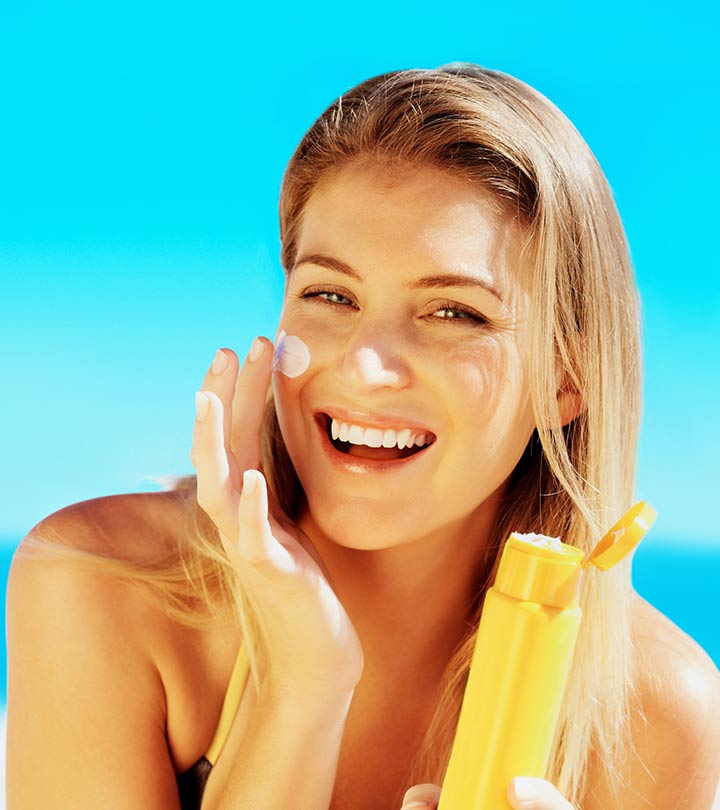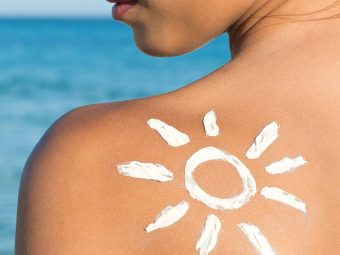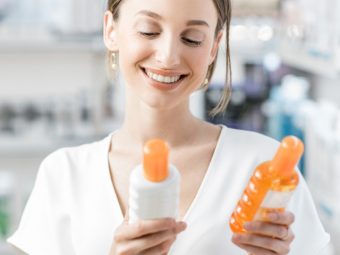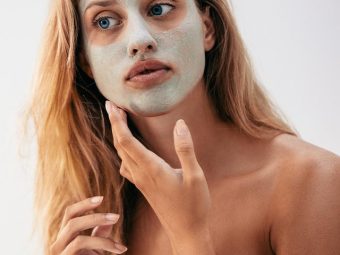6 Side Effects Of Using Sunscreen You Should Be Aware Of
Who knew the "messiah" of skin care has its own share of adverse effects?

Wearing sunscreen is a crucial step in the skin care routine. But are all sunscreens safe? Sunscreen side effects have been a cause for concern for a while now. Chemical sunscreens with tetracyclines, phenothiazines, and sulfa drugs may do more harm than good. Therefore, it is important to know what goes into your sunscreen and how it affects you. Read this article to know more. Scroll down.
How to Use Sunscreen:
- Apply sunscreen all over the exposed skin.
- You must do this 30 minutes before going out in the sun.
- It is advised to re-apply with the sunscreen after swimming, sweating, etc.
- Even if you are indoors, keep re-applying sunscreen after every 4 hours.
In This Article
Side Effects of Sunscreen
Here are some of the side effects of sunscreen:
1. Allergic Reactions
Sunscreens include some chemicals that can cause skin irritation such as redness, swelling, irritation, and itching. Some people develop severe allergic reactions with rashes and intense itching. This allergic reaction can be the result of chemicals found in sunscreens like fragrances and preservatives. PABA is ideally used in many commercial sunscreens that can cause a high rate of allergic reactions. Hence, this is getting removed from many popular sunscreens of reputed brands(1), (2).
You can even buy sunscreens with the label ‘hypoallergenic’. Sunscreens that don’t contain PABA are often labeled, but some other chemicals can lead to an allergic problem (3). If you are not sure about the allergic reaction that may be caused by a sunscreen product, get a patch test done by a dermatologist. You can use sunscreens that contain zinc oxide, as they are less allergic.
2. Sunscreens Can Make Acne Worse
If you have acne-prone skin, some chemicals in the sunscreen product can worsen your problem. To get rid of this side effect of sunscreen, you can choose non-comedogenic and non-oily sunscreens. It is suggested to use a sunscreen best suited for your skin type. Avoid using body sunscreens on the face, as these are too heavy (4).
3. Eye Irritation
Getting sunscreen into the eye can cause pain and irritation. This can also lead to burning and temporary sensitivity to light. Some claim that chemical sunscreens can also cause blindness. If the sunscreen gets into the eyes, rinse them thoroughly with cool water or see your doctor (5).
4. Increases The Risk Of Breast Cancer
Sunscreen includes ingredients that can have estrogenic effects on breast cancer cells. Some sunscreens can have effects on blood estrogens levels. Avoid using chemical sunscreens on your children, as their skin tends to absorb the chemicals instantly (6).
5. Pain in Hairy Areas
There are varieties of sunscreen that can be confusing to choose from. They are also available in many forms like gels, lotions, sprays, ointments, creams, and wax sticks. It is your personal choice to choose the type of sunscreen. Gels are best for hairy areas like the scalp or the male chest. Some sunscreens can lead to tightening or drying of the skin and can cause pain in hairy areas.
6. Pus in the Hair Follicles
This is a rare side effect that occurs. However, it is not usually due to sunscreen. You need to consult a dermatologist immediately if you are experiencing any pain or discomfort.
Tips To Avoid The Side Effects Caused By Sunscreen:
- Wash off and stop using the sunscreen if it causes redness or irritation.
- Talk to your doctor or seek the pharmacist’s advice about using a new sunscreen.
- Reapply sunscreen every 2 hours if you are outside for long periods.
- If you are using the lip balm form of sunscreen, apply it on the lip area only.
- Choose Sunscreen for your children very wisely.
- Avoid using sunscreen on kids younger than 6 months.
- Choose oil-free and non-comedogenic sunscreen if you have oily skin.
Sunscreen is an integral part of your skin care routine. However, not all sunscreens may be good for your skin. Some may cause serious side effects due to the ingredients used to make them. Sunscreens may cause allergic reactions, worsen acne, affect blood-estrogen levels, tighten your skin, and cause pus-filled blisters. You may have to follow the tips mentioned above to get rid of sunscreen’s side effects. It is always best to use chemical-free sunscreens to avoid allergic reactions. Always do a patch test before using any new product.
Frequently Asked Questions
Does sunscreen make your skin darker?
Maybe. According to anecdotal evidence, certain ingredients such as zinc oxide or titanium dioxide may temporarily darken your skin.
Should I wear sunscreen at night?
Not needed. Anecdotal evidence suggests that sunscreen may dry your skin or clog your pores if left on overnight.
Can I skip moisturizer and use sunscreen?
No. Most sunscreens do not have hydrating properties. Hence, apply your moisturizer before your sunscreen.
Does water remove sunscreen?
This depends on the waterproof properties of sunscreen. However, it is recommended you reapply sunscreen every 2 hours.
Sources
Articles on StyleCraze are backed by verified information from peer-reviewed and academic research papers, reputed organizations, research institutions, and medical associations to ensure accuracy and relevance. Read our editorial policy to learn more.
- Sunscreen allergy and its investigation
https://www.sciencedirect.com/science/article/abs/pii/S0738081X10002105?via%3Dihub - Potential allergenicity of commonly sold high SPF broad spectrum sunscreens in the United States; from the perspective of patients with autoimmune skin disease
https://www.ncbi.nlm.nih.gov/pmc/articles/PMC6831754/ - Adverse Reactions to Sunscreens
https://www.karger.com/Article/Abstract/517634 - Efficacy Safety and Subject Satisfaction of a Specified Skin Care Regimen to Cleanse Medicate Moisturize and Protect the Skin of Patients Under Treatment for Acne Vulgaris
https://www.ncbi.nlm.nih.gov/pmc/articles/PMC4295855/ - Comprehensive Review of Ultraviolet Radiation and the Current Status on Sunscreens
https://www.ncbi.nlm.nih.gov/pmc/articles/PMC3460660/ - Benzophenone-3 promotion of mammary tumorigenesis is diet-dependent
https://www.ncbi.nlm.nih.gov/pmc/articles/PMC7721615/






